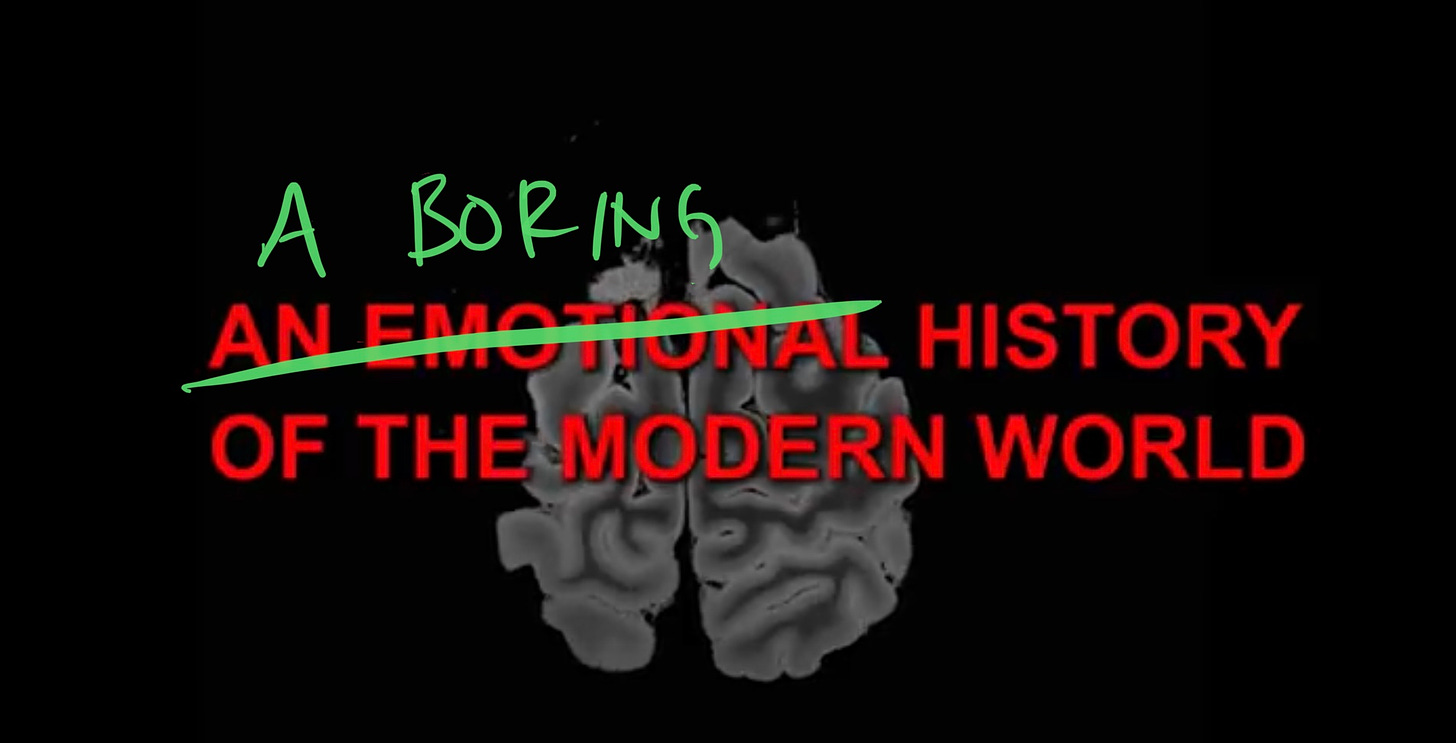In this ep we talk about Adam Curtis and our lack of excitement about his latest doc series, and how it’s gotten to the point that the promotional interviews he does are better than the films he’s promoting. Has Curtis gotten boring and repetitive, or are we so overwhelmed with information that his hypnotic propaganda style has lost its potency?
Towards the end Evgenia introduces the concept of “senilism” — an art idea developed by a Soviet artist after he moved to America. It’s perfect for our decaying empire and its stagnant capitalist realism. Embrace senility!
Missed our previous episodes?















Share this post